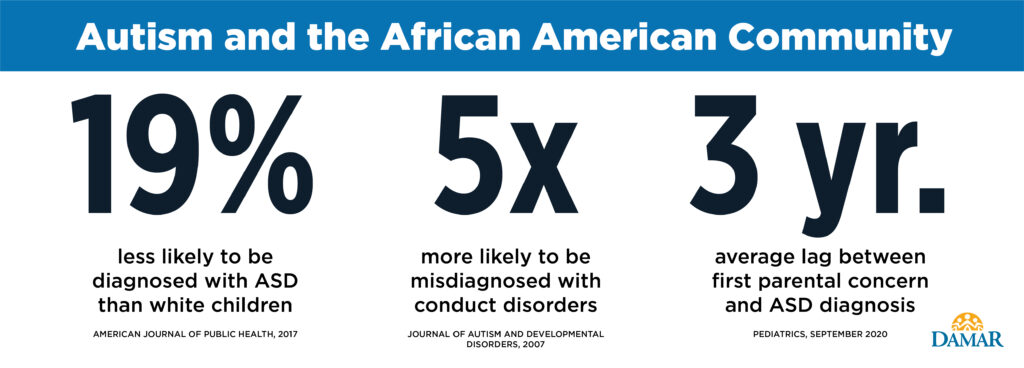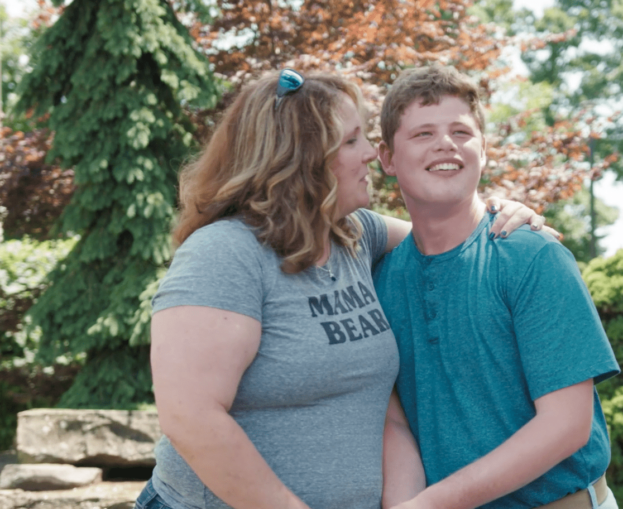Black History Month: An Opportunity to Pursue Autism Equity
In celebrating February as Black History Month, we miss opportunities for growth if we consider only the highlights of life in Black history. Instead, even as we honor milestones and key figures in the history of Black Americans, we also should take the opportunity to acknowledge situations in which our nation has failed its Black citizens.
However, we should not address challenging moments simply for the sake of pointing out flaws in our nation, but, instead, as a way to continually drive us toward a more equitable future … including a future in which Black children with autism have as many opportunities as their white counterparts.
Such a drive would be consistent with the founding vision of what has become Black History Month. Launched nearly 100 years ago, in 1926, this annual celebration highlights the contributions of Black Americans as a way to demonstrate their importance to the nation and, in so doing, to help us all seek remedies for racial injustice.
For Black children with autism, these remedies can’t come soon enough. While it was once thought that the incidence of autism in white children was higher than in Black children, more recent data suggests that autism incidence rates are nearly the same, with all races contributing equally to studies showing that roughly one in every 59 children is diagnosed with Autism Spectrum Disorder (ASD).
What apparently led to the assumption of lower incidence rates among Black children is a disparity in diagnosis rates. Here is what recent studies have to show:

What makes those final two stats – regarding misdiagnoses and a lag time in diagnosis – most alarming is that early intervention is essential to successful treatment for autism. And that means that countless children are living with autism without treatment, and others are living with autism for some time before receiving treatment. Therefore, they likely will require interventions for a longer time at a greater intensity.
So, how do we address this inequity? As overwhelming as it can seem, we do have opportunities to make a difference. Here are some ways you can help.
- Educate yourself. “If you have a relationship with a black child that you think may have a developmental disability, you will be most helpful to that child if you address your suspicions through education. Gather information that will be helpful to the child and his or her parents, and share that information … carefully, compassionately and confidentially … with someone who can help the child.
- Push for early diagnosis and treatment. Many signs of autism are apparent at an early age, but some parents don’t know what to look for. Watching for key developmental milestones can help identify problems in the first few months of a child’s life. If a family suspects a child might have autism, push for an evaluation as early as possible. And if a diagnosis of autism is the result, push immediately for a treatment program.
- Argue for equality of resources. The disparity in resources for supporting a child with autism and his or her family can vary wildly, and institutions serving white children do tend to have more resources than others. Raise your voice and insist that institutions that serve Black children have what they need to support a child with autism.
- Speak up. If your child has been diagnosed with autism, he or she is eligible for a wide range of services through schools and agencies. Educate yourself about what should be offered to your child, and then advocate to ensure that your child receives those supports.
- Do not go it alone. Caring for a child with autism is a big job, and no one should have to do it alone. Reach out to parent autism organizations like Damar’s Parent Voices and other support systems so that you are not alone in your autism journey.
- Be supportive. If you are not the parent or caregiver for a Black child with autism but know someone who is, offer your support to that family in any way you can, and lend your voice to advocacy efforts to ensure that child and other Black children with autism get equitable and fair treatment and access to services.
Racial equity means that everyone, regardless of race, should have access to the amenities of our nation, but it also means that everyone should have equal access to services and supports when needed. Let’s use this annual celebration of Black Americans as an opportunity to advocate for the rights and opportunities of all Black Americans, including those who live with autism.




